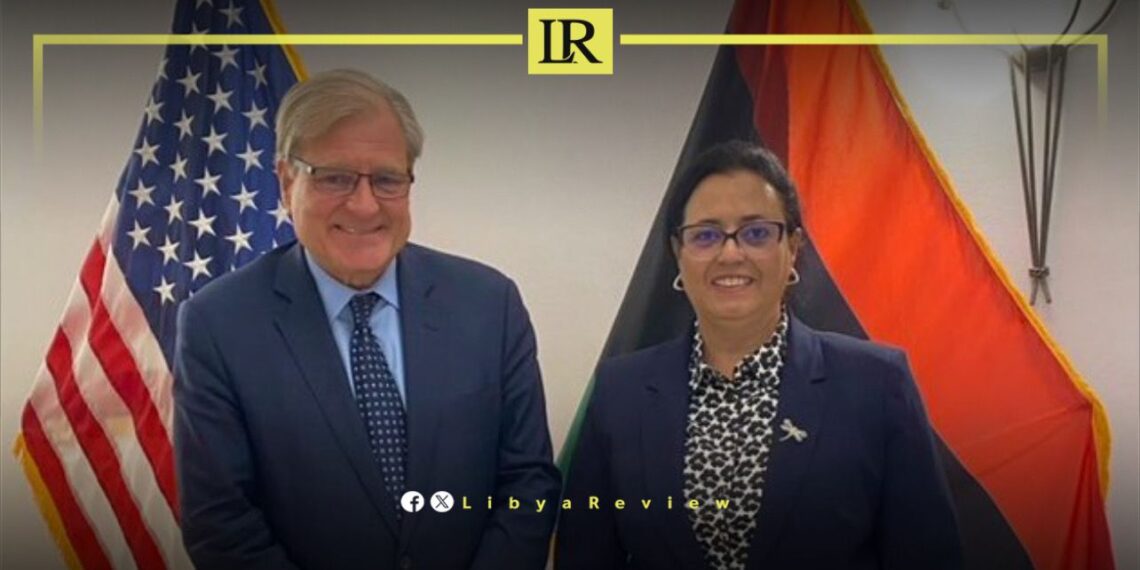On Thursday, the US Special Envoy to Libya, Ambassador Richard Norland, emphasized that comprehensive national reconciliation is vital for securing lasting stability in Libya. His comments underscore the urgent need for a unified political process to address the country’s deep-seated divisions and ongoing conflict.
Ambassador Norland made these remarks during a meeting in Tunis with Wahida Ayari, the African Union’s Ambassador to Tunisia, where they discussed the progress of national reconciliation efforts in Libya. The U.S. Embassy in Libya, through its social media platform, shared details of the meeting, which was also reported by the Libyan News Agency (LANA).
“The current political climate in Libya urgently requires moving forward with a comprehensive national reconciliation process that will lay the foundation for lasting stability,” said Norland. He also reaffirmed the U.S.’s commitment to working with the African Union to support Libyan parties involved in these reconciliation efforts.
Libya has been plagued by instability and conflict since the fall of Muammar Gaddafi in 2011. The country remains divided, with rival factions vying for power, and has yet to establish a unified government capable of leading it toward peace. In this context, national reconciliation is seen as an essential step toward healing divisions and building a stable political environment.
National reconciliation in Libya involves uniting the various political, regional, and tribal factions that have been in conflict for years. This process is critical to addressing the grievances that have fueled the ongoing strife and to creating a political framework where all groups feel represented and valued.
The involvement of the African Union in Libya’s reconciliation efforts is particularly important. The African Union has a strong track record of supporting peace and stability across the continent, and its engagement in Libya adds significant weight to the international efforts aimed at resolving the conflict. The U.S. aims to work closely with the African Union to leverage its regional expertise and influence in helping Libya achieve meaningful reconciliation.


